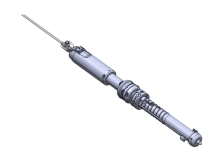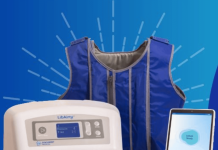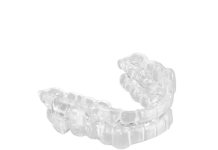Koya Medical this week announced positive results from a small, ongoing trial comparing its Dayspring compression treatment for lymphedema to a traditional pneumatic compression pump.
The Oakland, California-based company secured FDA 510(k) clearance for the device last month, saying it was the first such approval for an active compression treatment enabling movement and mobility with patients who have lymphedema or similar conditions affecting lymphatic flow in upper and lower extremities.
Koya Medical said in a news release that participants in the randomized, crossover study reported significantly greater adherence to Dayspring treatment compared to the pneumatic compression pump and demonstrated a greater reduction in limb volume, improvement in quality of life and patient preference.
The prospective study asked participants to use either Dayspring or the traditional pump for one hour per day over four weeks and then, after going four weeks without either, try the other device for an hour per day over four weeks. The trial is still enrolling patients; the results cover the first 37 participants who have completed the 12-week comparison.
Koya Medical said an estimated 20 million Americans have lymphedema, a progressive, incurable and painful swelling in the arm, leg or other regions of the body, commonly caused by cancer treatments.
“For people with lymphedema, movement is important from both a clinical perspective and a quality-of-life perspective. These data illustrate the Dayspring treatment’s ability to provide that essential movement while still delivering the clinical outcomes we need from compression therapy,” Koya Chief Medical Officer Dr. Rockson said in the news release. “Traditional pneumatic compression pumps have long represented an important and effective tool for lymphedema patients to self-manage a lifelong chronic condition. It is rewarding to see this much-needed innovation coming to market; it provides patients with an additional option, especially this one that enables movement and improves adherence.”




